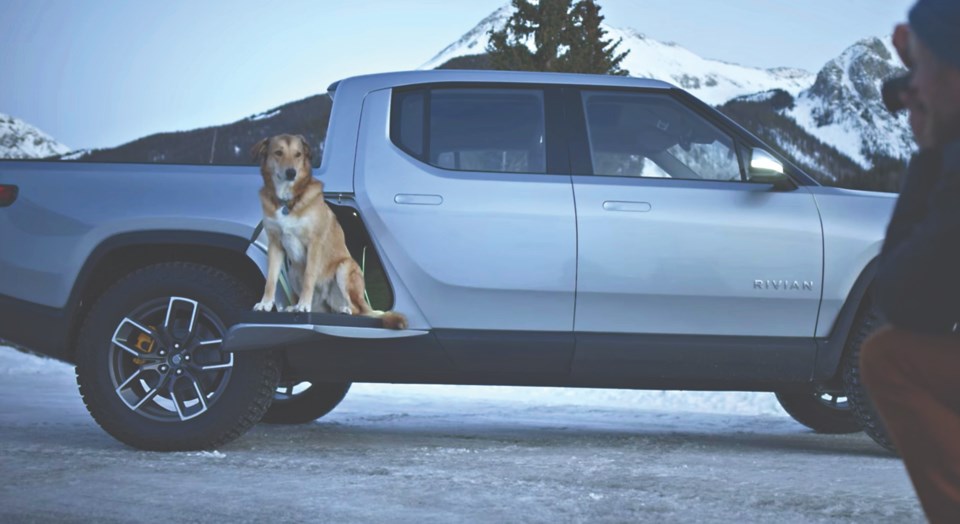A global pandemic notwithstanding, it’s been an encouraging week for the planet. Not only did we all valiantly share photos on social media last Thursday for Earth Day, Grandpa Joe steered the United States back into the 21st century climate science with his global climate summit.
If you didn’t catch it on the news, Biden pledged to reduce his country’s 2005 greenhouse gas emissions levels by 50 to 52 per cent by 2030. Big polluter developed countries such as China, Japan, Brazil and yes, Canada all pledged similarly impressive targets. It was one of those moments when we all thanked our respective makers that Joe is in charge down south and has a firm enough grasp on reality to show some real climate leadership.
Our own leader ratcheted up Canada’s contribution by reducing our climate emissions by 40 to 45 per cent by 2030, up from the previous figure of 30 per cent. While there’s always room for improvement, I’ll take that as good news. We have our own targets at the local level as well with the RMOW’s “6 Big Moves” climate action policy, mainly geared for reducing vehicle and building emissions.
While I hope that you, outdoor recreationist, are doing your part already to keep our winters cool and summers from turning into a fiery blaze, there is some technology in the pipe that will hopefully move us closer towards carbon neutrality while we recreate.
Let’s start with the big one. While many-a-real-Canadian man or woman wouldn’t be caught dead in an off road electric vehicle, trucks that run on batteries are on their way and there is a big market for them. The startup company that caught the most attention a couple of years ago is Rivian, which has publicized that its R1T pickup truck is delivering as early as June of this year. Not far behind Ford’s all new electric F-150, which hasn’t been unveiled yet but is scheduled for production in mid-2022. Owning the lion’s share of pickup truck sales in North America, it will be interesting if Ford continues to dominate on the electric side. There are a handful of other upcoming entries in the electric pickup truck category including Chevrolet’s new electric Silverado and Tesla’s ghastly Cybertruck, but don’t sell your gas guzzler just yet. These vehicles are still a ways off, are all very expensive and will no doubt have teething problems as they hit the mass market.
The next generation of campervans are going electric, too, though these are making more of an appearance at the European recreational auto shows. It will be a while before it’s practical to drive across the sparseness of Canada without camping next to a charging station every night. One of the cool innovations that’s in prototype is a camper trailer with its own electric drive, reducing the weight burden on your vehicle and allowing you to enter burlier terrain without fear of your trailer acting as an anchor. Australian startup OzXCorp seems to be leading on the tech front there.
Electric dirt bikes with their reduced weight and increased agility are getting more mainstream, though Sur-Ron owners need to remember that these e-motos aren’t to be ridden on the same trails as Class 1 e-bikes. I don’t think a lot of expert motocross riders are seriously considering going electric yet given the disparity in power output, but it does open up the market to those wanting an alternative access for their recreation. Think about the hikes you could do if you could blast up an overgrown, drainage ditch-ridden logging road that even some trucks struggle to get up. This past winter a couple of environmentally minded friends of mine in Italy were driving Cake Kalk electric motorcycles to access ski touring zones (with appropriate winter tires, of course). The Swedish company Cake has also launched an initiative to use this electric motorcycle for anti-poaching measures in Africa. The poachers can’t hear the rangers coming on electric motorcycles. Brilliant!
In motorized winter sports, a Canadian company is leading the industry of electric snowmobiles. Taiga was founded by three former McGill engineering students in Montreal, and was in full start-up mode when it first came to demo its sleds with Whistler Blackcomb and Canadian Wilderness Adventures back in 2017. Since then it has received significant investment and is scaling up its production to include snowmobiles that will soon realistically compete with the gas-powered status quo. Many snowmobiles are being purchased exclusively for ski touring access, and for that, electric is pretty much a no-brainer.
Like mainstream electric cars, we’re not quite at the point in motorized recreation where we can say goodbye to the petroleum industry. But it’s coming, and a lot sooner than we thought.
Vince Shuley is excited for the future of electrified recreation. For questions, comments or suggestions for The Outsider email [email protected] or Instagram @whis_vince.




